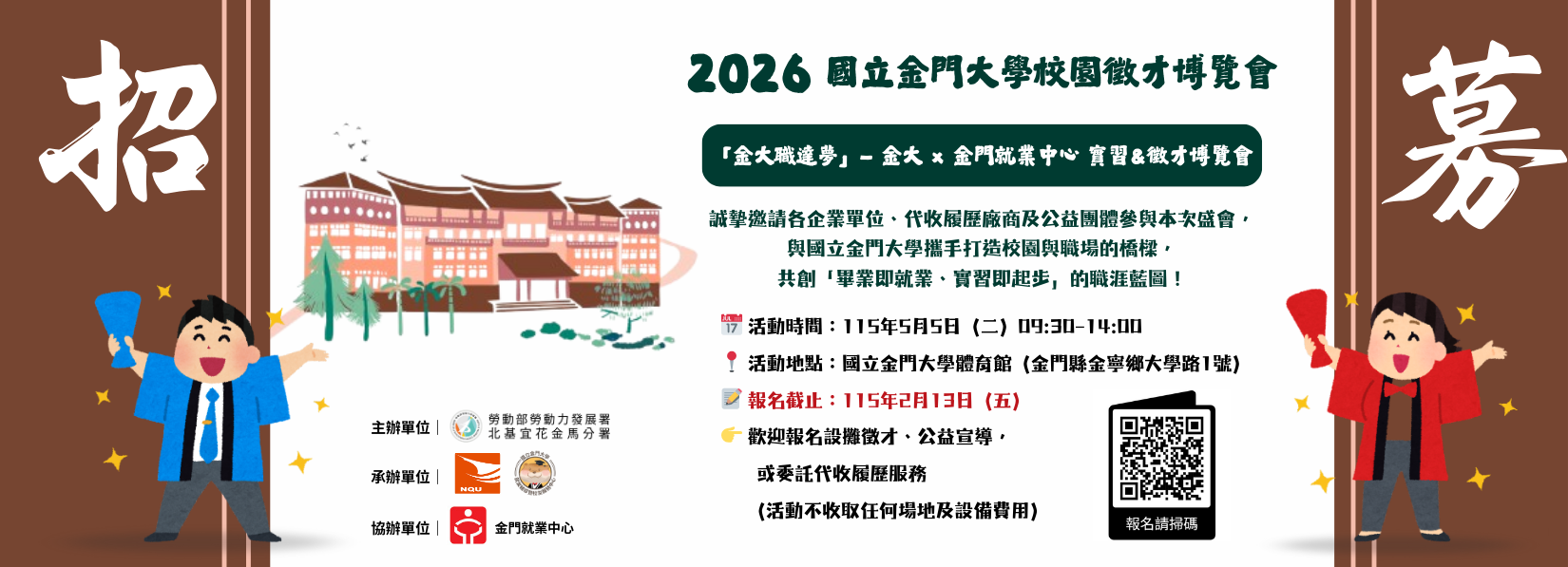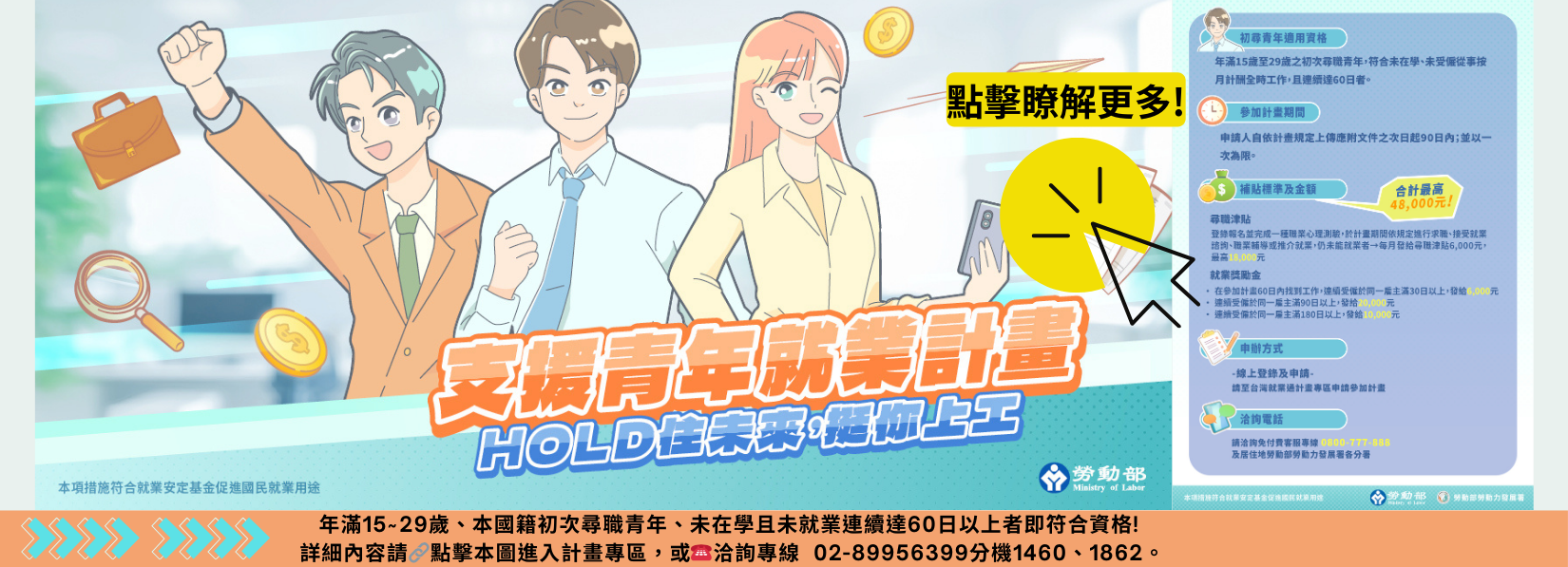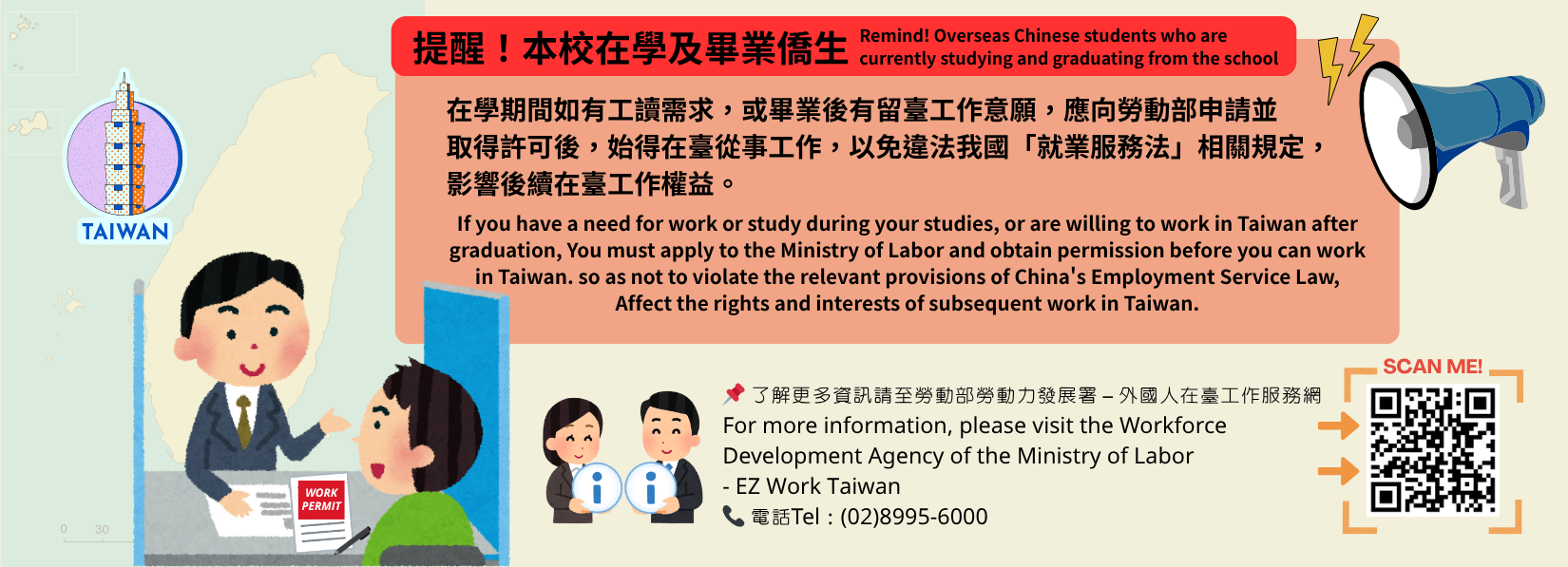Part-Time Jobs / Internships / Job Seeking Q&A, Labor Rights Promotion & Complaint Channels
Information is continuously updated; please click the tags below to read more.
Overview
This content covers labor rights protection information for different stages, including job seeking, employment, and career changes.
It provides important labor rights concepts for high school students working part-time or entering the workforce in the future.
Tips for Safe Job Seeking
To ensure the safety of young job seekers and avoid fraudulent job advertisements, the Ministry of Labor’s Workforce Development Agency reminds applicants to prepare “Three Essentials Before Applying” and follow the “Seven No’s During Interviews.”
-
Three Essentials Before Applying:
-
Inform family or friends of your interview time and location, or ask them to accompany you.
-
Review the legitimacy of the job advertisement.
-
Collect information about the company and clarify the industry and job role you are applying for.
-
-
Seven No’s During Interviews:
-
No paying money
-
No purchasing goods
-
No applying for cards
-
No signing contracts prematurely
-
Keep your identification documents with you
-
Do not consume food or drinks provided by the employer
-
Do not engage in illegal work
-
The agency urges youth and fresh graduates to verify information from multiple sources and remain vigilant to avoid job scams.
Additional Resources
-
Interview tips, common fraud cases, and more can be found in the “Summer Part-Time Work Essentials” handbook (see attachment at the bottom of this page).
-
☎️Free complaint hotline: 1955
Frequently Asked Questions (FAQs)
Q: Why participate in off-campus internships?
A: Internships help students connect theory with practice and improve their employment prospects by enhancing competitiveness.
Q: Is off-campus internship the same as part-time work?
A: No. Internship courses are formal academic programs designed to develop core skills related to students’ majors and future careers, supervised by school instructors and workplace mentors. Part-time work refers to jobs under the Labor Standards Act, with protections on wages, work hours, leave, and workplace injury compensation.
Q: Do interns receive wages? Are scholarships considered wages?
A: It depends on the internship provider.
-
If the internship provides wages (including any regular bonuses, stipends, or in-kind payments), an employment relationship exists, and labor laws apply.
-
If only scholarships or stipends are given without wages, no employment relationship exists, and school internship policies apply. Scholarships are not considered wages and do not qualify students for labor insurance.
-
However, if interns receive a living allowance, it is considered wages, and the employer must enroll them in labor insurance according to labor laws.
Q: Can interns be insured under labor insurance?
A: If there is no employment relationship and no wages, interns cannot be covered by labor insurance. If wages exist, interns can be insured by the employer upon explanation.
Q: What if the internship provider does not enroll interns in labor insurance?
A: To protect students during off-campus internships, the Ministry of Education requires all colleges to help students purchase accident insurance before internships, with coverage of at least NT$2 million for accidental injury and NT$50,000 for medical expenses.
-
The current insurance providers are Shin Kong Life Insurance (2024 school year) and Shin Kong Property Insurance (2025 school year).
(💪 Information is continually updated…)







